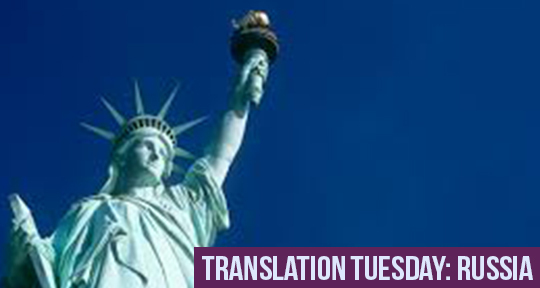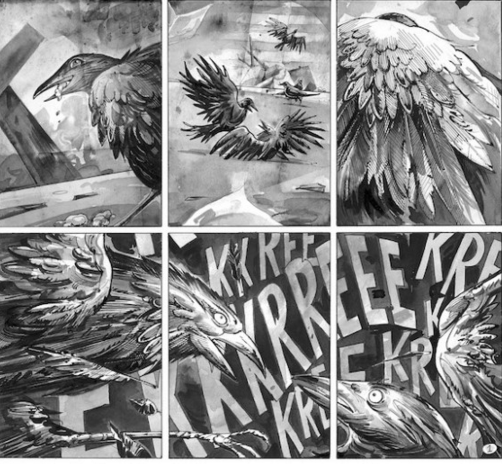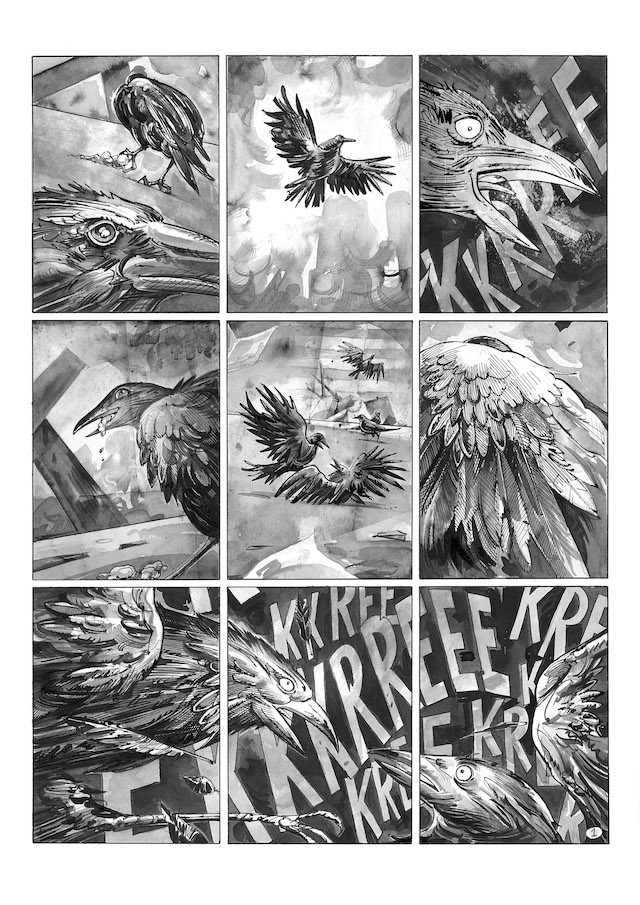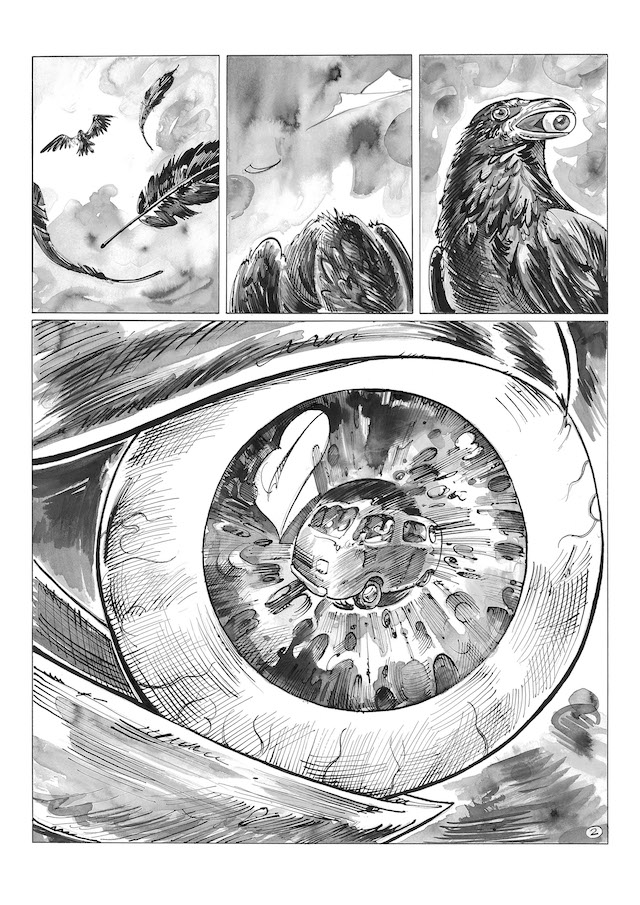In this week’s Translation Tuesday, writer and translator Irina Mashinski presents a lyrical and impressionistic account of finding new sanctuaries in “Going off to America.” Through a quasi-epistolary stream-of-consciousness, our narrator adopts logical wordplay to reorient a new life, illustrating the otherworldliness of an immigrant experience through the inherent strangeness and malleability of language. Words are dissected and negated, leading to a string of neologisms which hint at death, negation, and rebirth: “Amortica,” “A-merica,” “Unmerica.” These altered words speak to a sense of spatial inversion as our speaker confesses to the loneliness of living in a seemingly inverted world, and how one can find a parallel home in its seemingly foreign comforts.
Dear friend—well, yes, of course, that possibility always remains: to go off to America (if only you’re not there to begin with). When even the Symphonie fantastique sounds predictable—then, maybe, yes, the time has come. Then you can hang down, head first, press your ribcage painfully against the metal ribs of the bedframe, lean against the mattressed matrix of the elevator, peer into the elevator shaft in that far—faaar—away entrance, which smells of the shoe cabinet and someone else’s cooking, and to guess at the hammock sagging into the netherworld below, that’s right, to guess rather than see—all of it, to the overturned concave horizon, the unfamiliar underside of the world, with its excruciatingly embossed rhomboid plexus, all the sea stripes, interlaced with terra incognita or tabulae rasae, and black birds with their uneven jagged edges, hollering in the language that you’ve yet to learn—and only then can you cautiously touch the stiff satin dome, punctured by the pattern of beaks and knots. You won’t believe how quickly things will start to happen then, how nimbly the glinting sun will twist and turn to face you, like a polished coin’s head, balancing on its ribbed edge, and the next moment the sailors are already peering mistrustfully into your documents, as if they’re looking out at some finely enamelled horizon, and then the timeworn propeller winds up, and the movie projector begins to whir, and then the phantom called city M disappears in the foam of salty snow whipped up by the trolley buses.
Of course, it’s entirely possible to revive in Amortica, to begin anew and never be reborn again. What you are asking about, what you are calling A-merica is neither this, nor that, nor the other, but a trying of the otherness, which is a priori impossible. Believe me, the negating A- is not accidental—it’s that ironic little taglet, a tag that chases you right into the heart of the nonexistent. Should you also try all that happened to me and to others like me—with my family, dragged to the other side, with a guitar made in a small Russian town with blue shutters and abnormally large apples, and, most vitally, with a carefully selected load of dusty vinyl records, oh, yes, and with another possession: a portable Yugoslavian typewriter with its now forsaken Cyrillic and broken memories? You’re thinking that to go off to America means to return all the cards to the dealer and to take new ones from the deck that contains everything, as we know, except cabbages and kings, including a river that flows through its improbable south and contains more s’s than any other word. That’s why (you’ve heard) the poet gave the name to the cat—the poet is dead, but Morton Street is there, with a symmetrical No.44 at its bended elbow—and there you are, starting from scratch. READ MORE…







